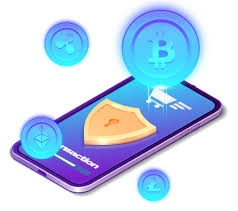Blockchain wallets play a central role in the expanding world of decentralized finance. Users utilize these wallets to access various DeFi services, including lending, borrowing, yield farming, and decentralized exchanges. By connecting their wallets to DeFi platforms, users can engage in financial activities without the need for traditional banks or financial intermediaries.
*Smart Contract Wallets:
Smart contract wallets are a type of blockchain wallet that operates through smart contracts on the Ethereum network. These wallets offer additional security features, allowing users to set rules and conditions for their transactions. For instance, users can set up multi-signature requirements or time-delayed transactions, adding layers of protection against unauthorized access.
*Environmental Considerations:
The environmental impact of blockchain technology, particularly Proof of Work (PoW) cryptocurrencies like Bitcoin, has been a topic of discussion. PoW blockchains require substantial computational power, leading to high energy consumption. Some blockchain projects are actively exploring energy-efficient consensus mechanisms, such as Proof of Stake (PoS), to mitigate environmental concerns. Users may consider these factors when choosing blockchain networks and wallets.
*Non-Fungible Tokens (NFTs) and Wallets:
NFTs, unique digital assets representing ownership of specific items or art pieces, have gained significant traction. Blockchain wallets are essential for storing, buying, and selling NFTs. NFT enthusiasts often use specialized wallets compatible with these digital assets, ensuring secure storage and smooth transactions.
*Educational Resources and Community Support:
Blockchain wallet providers often offer educational resources and community support to help users understand their products better. These resources include tutorials, guides, and online communities where users can ask questions and share experiences. Utilizing these resources can enhance users' knowledge and confidence in managing their cryptocurrency assets.
The Role of Blockchain Wallets in Financial Inclusion:
Blockchain wallets have the potential to promote financial inclusion by providing individuals in underserved regions access to banking services. With just a smartphone and an internet connection, people can create blockchain wallets and participate in the global economy, enabling financial transactions, savings, and investments without the need for traditional banking infrastructure.
**Security Best Practices:**
Regardless of the type of blockchain wallet chosen, users should adhere to essential security practices. This includes regularly updating wallet software, using secure and unique passwords, enabling two-factor authentication where available, and being cautious of phishing attempts. Additionally, users should keep their operating systems and antivirus software up-to-date to protect against malware threats.
By staying informed about these aspects and continuously monitoring the evolving blockchain technology landscape, users can make informed decisions about their blockchain wallet choices, ensuring the security and efficient management of their cryptocurrency holdings.